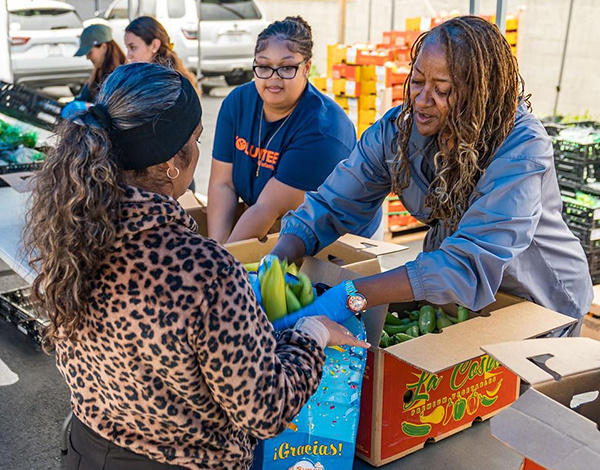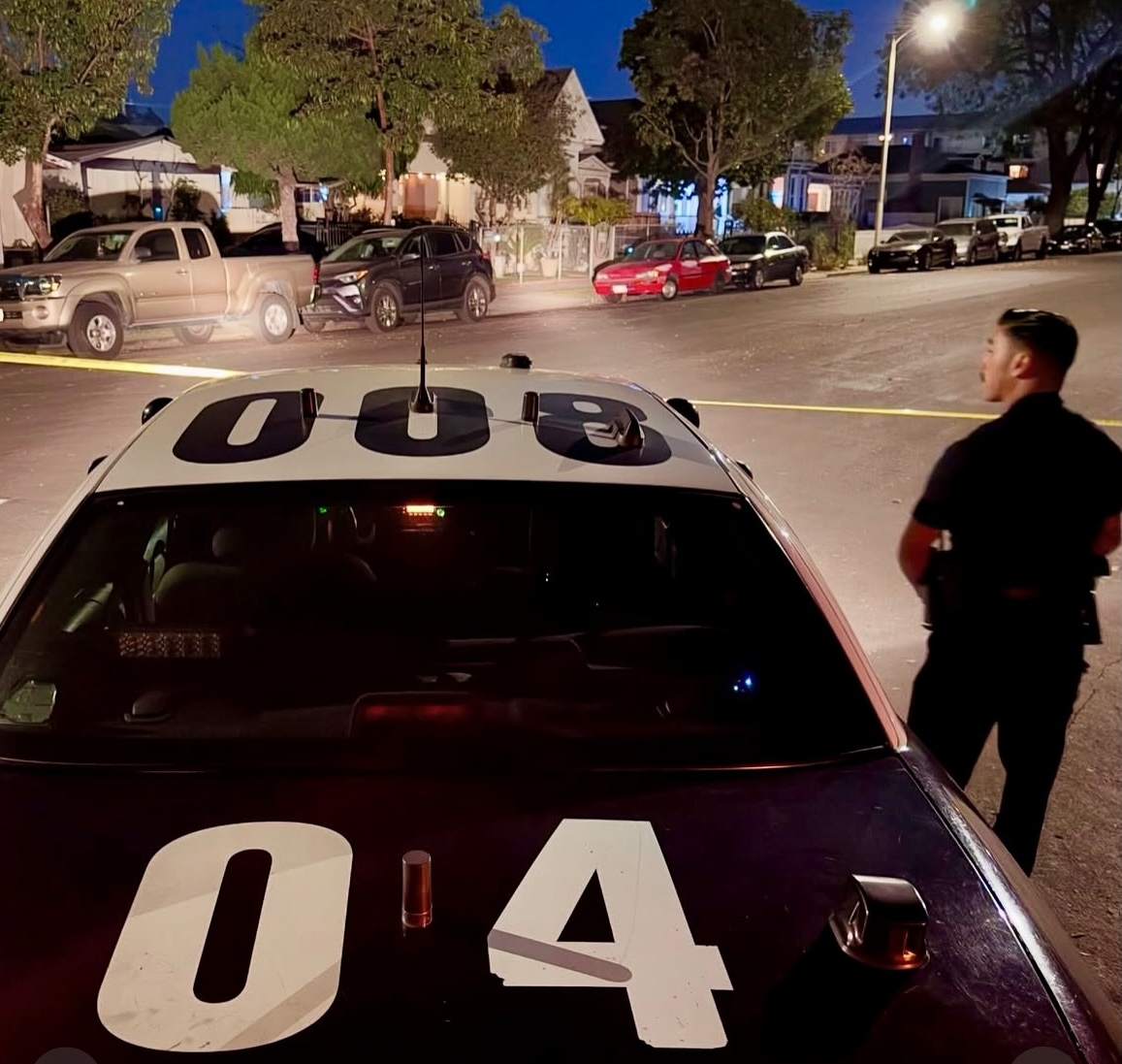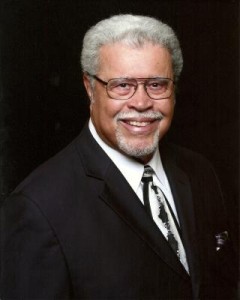THE HUTCHINSON REPORT: Restoring SNAP benefits won’t put an end to hunger

County Supervisor Holly Mitchell helps put together food baskets Nov. 3 at the Venice Family Clinic in Inglewood for the clinic’s weekly food distribution program. Columnist Earl Ofari Hutchinson writes that 50 million people in this country suffer from food insecurity on a daily basis.
Courtesy photo
By Earl Ofari Hutchinson
Contributing Columnist
Even if President Donald Trump did the right — not the abominable, unconscionable, potentially starvation-threatening wrong — thing in refusing to release the $5.5 billion held in the Supplemental Nutrition Assistance Program contingency fund it will not change one brutal, life-endangering fact. Even if every penny is released, the contingency fund amount only covers slightly more than half of November’s benefits.
But far worse, it will not change the even harsher fact that millions in America and especially Los Angeles daily stare hunger, even starvation, in the face. That’s especially true for the hardest hit of all. They are single mothers and lower income Latinos and Blacks.
The figures tell the grim tale of their plight. Nationally, in 2023 nearly 20 million households faced hunger. But even that tells only a tiny smidgen of the hunger story.
Nearly 50 million people face a dire situation which to soften the pain and reality of hunger has been dubbed “food insecurity.” That is almost laughable if it wasn’t so heartbreaking a euphemism for “they’re hungry!”
Here is the other sobering figure on near starvation in this country. It affects 14 million children. A disproportionate number of those who go to bed hungry are Latinos and African Americans.
Nearly all rely on private and public agencies such as food banks for food. The back story on the food banks is that many of them are hard-pressed to provide the massive volume of food needed to keep up with the even more massive demand.
In Los Angeles, the grim hunger picture is even grimmer. One in four households are “food insecure.” Again, the majority are lower income single mothers, Latinos and Blacks.
Even if Trump had not blatantly ignored the recommendation from his own White House’s own legal guidance that green lighted use of contingency funds to cover benefits, the hunger crisis will still be a painful fact. And if there had been no confounding congressional shutdown and the food stamp money flowed as legally mandated, it will not change one whit the horrific hunger the hungry millions in Los Angeles and the nation suffer daily.
The reason is simple. It’s called poverty. Poor people are more likely to be hungry. And hungry people are more likely to be poor.
In times past, legions of state and local officials made flowery references to the plight of the poor. This was all accompanied by candid media shots and interviews with families trapped in dire poverty.
That was a decade ago. That fleeting moment when the plight of the poor grabbed the national spotlight was just that, very fleeting.
The desperate scenes of families scrounging for food in many cities rammed home the painful message that rampant poverty and hunger is a hard fact of life for millions. The scenes at times forced policy makers and many in the media to acknowledge that brutal fact. It also forced the even more painful admission that one out of three households’ residents who lived below the poverty level were Latino or Black.
It also forced one more painful admission and that was that hunger and poverty is not an aberration. Nationally and in Los Angeles, according to Census figures, Latinos and Blacks remain at the bottom of the economic totem pole. They have the lowest media income of any group.
An indifferent, clueless, and vindictive Congress and Trump are not the sole culprit. Even during the Clinton era economic boom, the unemployment rate for the minority poor was double, and in some parts of the country, triple that of whites.
During those years, state and federal cutbacks in job training and skills programs, the brutal competition for low and semi-skilled service and retail jobs from immigrants, and the refusal of many employers to hire those with criminal records further hammered Black and Latino communities.
Then there are the children. One third of America’s poor are children. The Children’s Defense Fund, in its periodic reports, routinely finds that more than one million Latino and Black children live not in poverty, but in extreme poverty.
Meanwhile, Trump and Republican congressional leaders wildly grasp at political self-serving straws in a ludicrous effort to defend not releasing the SNAP contingency funding that would put some brakes on the hunger crisis. They falsely claim that the funds aren’t legally mandated to be released. That’s a lie.
They claim that the funds, if released, won’t be nearly enough to cover the mountainous number of people who rely solely on food stamps to round out a meal. That’s the only claim that is true. However, that just makes a dire situation for the hungry millions even worse.
Whether a court orders the SNAP money to be released or Trump, in a rare moment of compassion for the poor and hungry, relents it will not dent the ongoing disgrace and shame of a country that has so many people that are one step away from having an empty plate on their table day and night. That’s no game for them or the nation.
Earl Ofari Hutchinson is an author and political analyst. His forthcoming book is “White-Supremacist-In-Chief” (Middle Passage Press).





